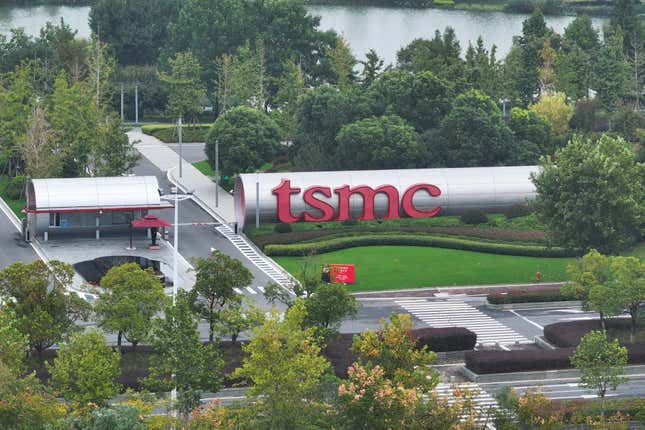
In This Story
The outgoing Biden administration is introducing even more measures focused on keeping advanced chips out of China.
The new regulations reinforce and build upon previous U.S. export controls aimed at restricting China from advanced semiconductors that can be used for artificial intelligence and military development. Under the rules, foundries and packaging companies that want to export certain chips are subject to a broader license requirement unless certain conditions are met.
“Advanced AI capabilities — facilitated by supercomputing, built on advanced semiconductors — present U.S. national security concerns because they can be used to improve the speed and accuracy of military decision making, planning, and logistics,” the U.S. Commerce Department’s Bureau of Industry and Security (BIS) said in a statement.
The new rules encourage chip producers, including Taiwan Semiconductor Manufacturing Company (TSM), Samsung, and Intel (INTC), to improve customer scrutiny and due diligence to prevent advanced technology from getting to Chinese customers, Bloomberg previously reported, citing unnamed people familiar with the matter. The measures follow the discovery of TSMC-made tech in a cutting-edge artificial intelligence chip developed by sanctioned Chinese tech giant Huawei in October. According to the BIS, the new rules improve reporting for transactions with new customers who could pose a risk of diverting semiconductor components to China.
Earlier this week, the U.S. published new guidelines aimed at curbing AI chip sales from U.S. firms, including Nvidia (NVDA), to specific countries and companies. The new export controls include three tiers of chip restrictions, which give friendly nations full access to U.S.-made chips but add new limitations to others.
Meanwhile, the Netherlands released new rules aimed at Dutch semiconductor equipment maker ASML (ASML). Under the new export controls, ASML must apply for licenses with the Dutch government rather than the U.S. government to export certain measuring and inspection tools. The rules will be effective starting on April 1.
China-based Huawei and its chipmaker, Semiconductor Manufacturing International Corp. (SMIC), depended on ASML’s deep ultraviolet lithography machines to make advanced chips. However, the Dutch government restricted sales of this advanced tech to China last year, which has been unable to build a similar version of ASML’s equipment. China also cannot buy ASML’s extreme ultraviolet, or EUV, machines, which are used to make advanced chips designed by Nvidia and Apple (AAPL).